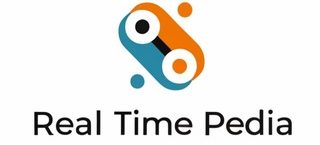
Do Eggs Benefit Men?
Whether you like them raw or cooked, egg protein is a complete source of amino acids. In addition, they are rich in vitamin A and B-12.
They are also a good source of omega-3 fatty acids. These fats are essential for brain function and can lower blood triglycerides.
Protein
Eggs have become a controversial food in recent years, especially when it comes to the nutrition they contain. However, they do have some health benefits for men.
They are a great source of high-quality protein, which is essential for gaining and maintaining muscle mass. They also contain all nine of the amino acids that your body needs to build new muscle cells, repair damaged ones and grow healthy tissue.
Eating a high-protein diet can help you to feel fuller for longer, which helps reduce your appetite and desire for unhealthy snacks. This makes it easier to maintain a healthy weight.
Boiled eggs are a great way to get a boost in protein. They are also a good source of vitamin D, which is needed for strong bones and teeth.
Another nutrient that eggs contain is choline, which promotes brain, nervous system and cardiovascular health. It also helps pregnant women with fetal development and prevents birth defects.
The lutein and zeaxanthin in eggs protect against macular degeneration and cataracts, which are common causes of blindness in older people. They also supply many other important nutrients for your eyes and skin.
They also have the added benefit of being rich in vitamins A, B6, C, D, K and E. Some even contain omega-3 fatty acids, which are necessary for your brain and vision.
But it is important to keep in mind that eggs are a rich source of fat, so be sure to eat them with healthy alternatives like whole grain bread or a cup of fruit salad. Saturated fats, like those found in processed meats, increase your risk of heart disease and cancer.
Some studies have shown that up to two eggs a day can improve your heart health, but it is best to stick to a low-fat, low-saturated-fat diet.
One medium boiled egg contains about 4.2 g of fat, with 1.4 g of saturated fat. The rest is unsaturated. Experts suggest limiting total fat to 25-35% of your daily calories and avoiding saturated fat.
It is important to choose quality sources of protein, such as pastured or free-range eggs, which provide a greater range of nutrients than commercially produced eggs. These eggs are often enriched with omega-3 fatty acids, which promotes a healthy immune system and can protect against chronic disease.
Choline
Choline is a B-vitamin that can be found in many foods, including eggs. It is an essential nutrient that can have a positive impact on the brain, heart, and liver. It also plays a role in the formation of fats that make up cellular membranes and DNA synthesis. It is also an important nutrient for fetal development and the nervous system.
There is some evidence that choline can help reduce the symptoms of cystic fibrosis, a chronic lung disease that is often fatal. Supplementation of choline has been shown to improve lung function and decrease symptoms of fatty liver in people with this condition.
Egg yolks are a good source of choline, with just one large egg containing about 140 milligrams. This is about 30% of the choline recommended daily intake (RDI) for adults.
Other sources of choline include meats, fish, dairy products, nuts, seeds, legumes, and vegetables. For vegetarians, soy products are a great source of choline.
A serving of raw soybeans contains 216 milligrams of choline, making it an excellent option for a plant-based diet. Some soy products have more choline than others, however, so it’s important to read the label on the product you’re considering.
If you’re looking to increase your choline intake, it is best to start by limiting processed foods and adding more whole foods. This will not only help you meet your nutrient needs, but it will also help you avoid the added calories and saturated fats that come with processed foods.
Increasing your choline intake can be especially beneficial for women who are pregnant or planning to become pregnant. A recent study found that women who took a prenatal choline supplement had fewer signs of preeclampsia, which is a condition that can lead to complications in pregnancy.
In addition, choline is also important for athletes to help protect against nitric oxide deficiency and enhance muscle performance. It is also important for preventing fatty liver and promoting heart health.
Vitamin B12
Vitamin B12 is an essential nutrient for men, which helps keep your nerves, blood and DNA functioning properly. It is found naturally in meat, fish and dairy products as well as fortified foods.
A deficiency can lead to a number of serious health problems including brain damage, dementia and psychiatric disorders. It also helps protect against heart disease by lowering elevated levels of homocysteine.
It is a water-soluble vitamin that is found naturally in certain meats and fish as well as fortified cereals. It binds to protein in food and passes through the stomach and small intestine, where it is absorbed into the body.
The recommended daily allowance of 2.4 micrograms of vitamin B12 is adequate for most adults. However, some people have difficulty absorbing vitamin B12 and need to take a dietary supplement. This is especially true for those with a medical condition that affects the ability to absorb nutrients. For example, if you have gastrointestinal ulcers or are on medication such as metformin, you may not be able to absorb enough vitamin B12.
You can find vitamin B12 in eggs and other dairy products such as milk and cheese. Fortified breakfast cereals are a great source of this vitamin, too.
Several vegetarian and vegan foods also contain vitamin B12, such as tinned tuna, fortified soymilk, nuts and seeds. If you are a vegetarian, be sure to check the labels of the fortified foods you purchase.
Another way to ensure that you are getting the proper amount of vitamin B12 is by ensuring you are following a healthy diet. A balanced dietary pattern with a variety of fruits, vegetables, whole grains and fat-free or low-fat dairy will provide the necessary amount of this important vitamin for your body.
For men who are older or have a medical condition that reduces the ability to absorb vitamin B12, taking a multivitamin supplement can help meet their requirements. It can also be a good option for those who have trouble absorbing vitamin B12 through their diet alone.
Vitamin B12 is a key component of the immune system, as it supports the production of red blood cells. It can also decrease the risk of developing high cholesterol and high blood pressure. It is also essential for a healthy nervous system, and can aid in maintaining a healthy weight.
Vitamin D
Vitamin D is a very important nutrient and it’s found in many foods including fish, eggs, fortified milk and cod liver oil. However, if you’re not getting enough of this vitamin in your diet it can be a problem. This is because vitamin D deficiencies are incredibly common and it can lead to a variety of health issues such as osteoporosis, rickets, and even cancer.
Eggs are a good source of this vitamin because the yolks contain around 36.7 IU of vitamin D per large egg. It’s also recommended that you consume at least two whole eggs a day to ensure that your daily intake of this nutrient is adequate.
In addition to its many benefits for the human body, this vitamin also benefits men as it has been shown to decrease the risk of erectile dysfunction. This is because this vitamin helps maintain a healthy flow of blood and reduces the buildup of plaque, which can cause erectile dysfunction.
This is a very important vitamin for the heart and the kidneys, and it is believed to play an essential role in controlling blood pressure. It is also thought to lower the risk of developing diabetes by helping the body process glucose.
The vitamin also aids the immune system and prevents infections and colds. It also helps with the absorption of calcium, which is critical for bone health and for avoiding rickets.
A vitamin D deficiency can be dangerous, especially for children and elderly individuals. The vitamin plays a key role in promoting normal growth and development, which is why it’s recommended for infants and children.
Despite this, many people aren’t meeting the minimum daily requirement for this vitamin, so it’s important to get your levels tested. You can do this by going to your doctor and having a blood test done.
This will help your doctor determine the right dose for you and ensure that your levels are at an adequate level. If you’re deficient it’s recommended that you take a vitamin D supplement to ensure that your level is at an appropriate level.
Also Search: Soymamicoco







